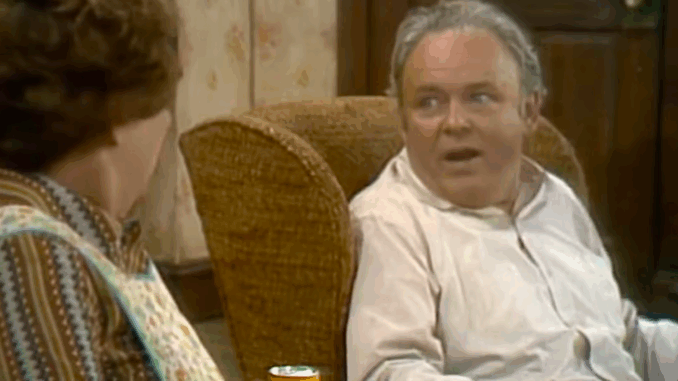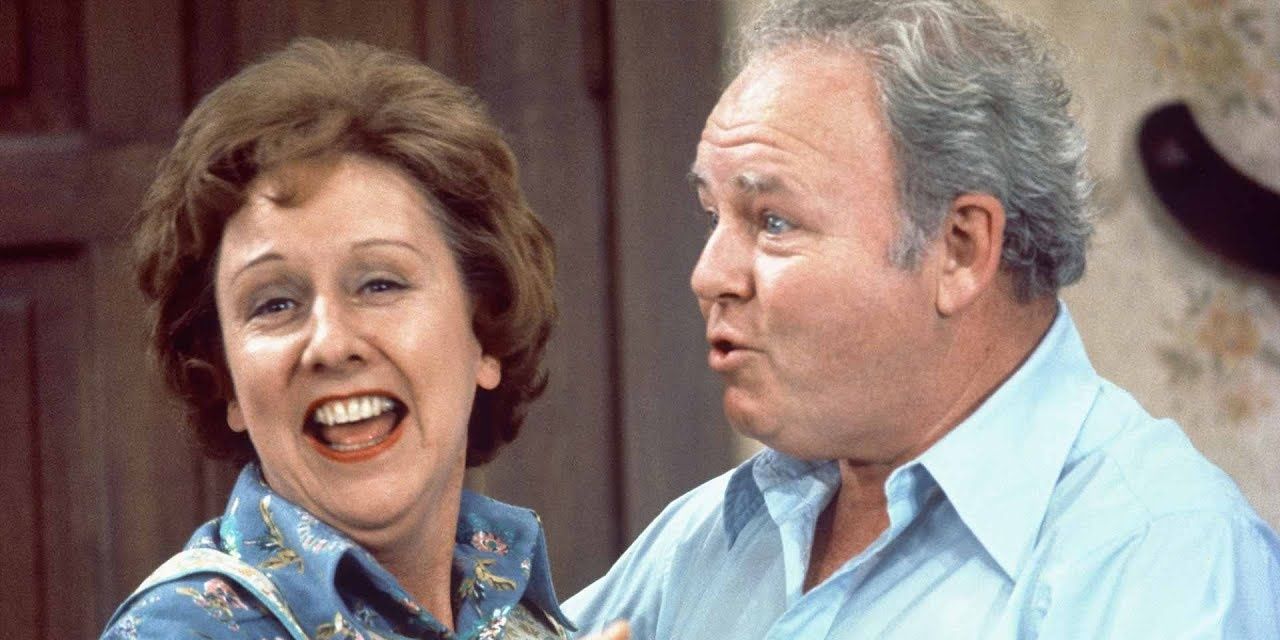
For seven seasons, All in the Family gave audiences laughs with a side of cultural critique. But in Season 8, Episode 4: “Edith’s 50th Birthday,” the show did something radical—it stopped being funny. The result was one of the most daring and powerful half-hours
A Disturbing
The episode opens with typical birthday cheer. Archie has forgotten Edith’s birthday—again—and friends are planning a small surprise party. But within minutes, the tone shifts drastically when Edith, alone in the house, is attacked by a man posing as a poli
Yes, All in the Family—a primetime comedy—addressed attempted sexual assault.
It was shocking in 1977. It’s still shocking today.
Edith Bunker: From Background Wife to Survivor
Jean Stapleton’s portrayal of Edith had always been sweet, kind-hearted, and often taken for granted. In this episode, she stepped into the spotlight, not as Archie’s ditzy wife, but as a woman fighting to preserve her dignity and sense of safety.
Edith’s fear was raw. Her scream—when the attacker lunges toward her—was not scripted; Stapleton improvised it, and the camera never cut. The studio audience fell silent. This wasn’t slapstick. This was survival.
When Edith finally escapes and locks herself in the kitchen, we don’t get resolution. We get trauma. The episode ends not with applause, but with unease.
The Network Didn’t Want It. Lear Fought for It.

Norman Lear, the show’s creator, was no stranger to controversy. But even CBS executives balked at the idea of putting an attempted rape in a sitcom.
Lear didn’t back down.
He argued that audiences could handle the truth—that comedy could be a vehicle for brutal honesty, not just escape. The gamble worked. Critics called the episode “a moment when American television grew up.”
Reactions: Viewers Wrote Letters. So Did Congress.
The episode sparked national conversation. Some praised its courage. Others said it crossed a line. The FCC received complaints. CBS received thousands of letters—some furious, others grateful.
Women wrote in saying they felt seen for the first time. Advocates for survivors praised Stapleton’s sensitive, realistic performance. Meanwhile, critics wondered: “How far is too far for a sitcom?”
This wasn’t just TV anymore. This was a cultural reckoning.
Why the Episode Still Matters in 2025
Today, “Edith’s 50th Birthday” is taught in media studies courses. It’s cited in essays about the evolution of TV drama. And yet, many younger viewers who discover the episode via streaming are shocked at how modern it feels.
The topic is sadly still relevant. The way All in the Family handled it—with empathy, ambiguity, and no tidy resolution—is what sets it apart.
We don’t see Edith bounce back by the next episode. Her trauma lingers. The show dares to let us sit with that discomfort.
A Sitcom That Dared to Be More
This wasn’t just another episode of All in the Family. This was a challenge—to the audience, to the industry, to the very idea of what television could do.
And it worked.
When Jean Stapleton stepped into that kitchen and slammed the door shut on her attacker, she also blew open the doors of American television.
Because in that moment, All in the Family wasn’t a comedy.
It was real life.